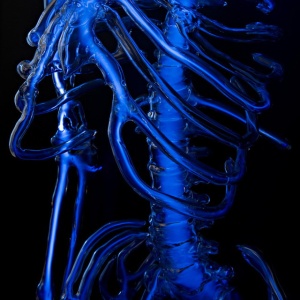 Another pseudo-story, based on a common literary motif. I’d call it a 20-minute story, but it took a little (read: a lot) longer to sort out. I’m beginning to wonder how people can be so good at writing those things… because I have longer sneezing fits.
Another pseudo-story, based on a common literary motif. I’d call it a 20-minute story, but it took a little (read: a lot) longer to sort out. I’m beginning to wonder how people can be so good at writing those things… because I have longer sneezing fits.
Only in a dream could such a strange meeting take place, and that’s where this encounter between you and future-you occurred.
The sun sat at an odd angle that grazed the tabletop, its thick light hard to distinguish as morning or evening when you didn’t know where the window was. Somehow future-you seemed similar to the table’s shadows, pulled like taffy and attenuated but full and dark too. Naturally you expected future-you to be wise. You had so many questions.
Instead, for some time you and future-you communed, listlessly shifting and turning glasses, plates, and bowls as if they were pieces in a board game of subtle spaces and moves. The sun dimmed appreciably. Your eyes and future-you’s eyes marked its shrinking influence.
Future-you cleared his throat and you nearly jumped, but he had nothing to say and may have been prompting you. You locked stares, and you guessed his meaning—he envied you and wondered when this wisdom you expected left him or whether he left it on the lips of the last woman he kissed or in the swoop of letters never finished, or in everything granted, sold, given away, and lost. His doleful expression said so. He expected comforting. You didn’t anticipate that.
So you advanced your hand toward future-you’s. He drew back, then nodded.
You spoke first. Nothing you might say could be new, you figured, and so your speech rolled out in bursts like beach breakers. You can’t remember any of what you said, just that you recalled you were dreaming. Mostly you paused for interruption and hoped future-you might answer your noise with a greater and graver future voice. That would be enough.
Instead he appeared tickled, pleased to hear you fumble so. You would have mistaken his response for condescension except—of course!—future-you would react so, charmed by everything still fresh in you and spoiling in him. You matched his laughter with your own before catching a whiff of his breath and the unwelcome hints in its smell. You knew and didn’t know future-you, and he, you believed, knew you entirely.
His tears welled slowly at first and just glimmered in failing light. When you recognized his weeping, part of you wanted to console him. The other part desired more—how could you become so leaky, so riddled with age-spots, water stains, and patches of rust? How could all you wanted come to no more?
Perhaps future-you sensed confusion. He scooted his chair back and stood. You couldn’t miss his struggle. He hadn’t seemed old before, and his stoop loomed like death in the room’s near-darkness. He wasn’t angry. He held his dignity up as all he could say about you and him. And he meant to tell you he loved you. Whatever disappointment dwelt in him didn’t reach you.
Seeing that, he left and you woke.













